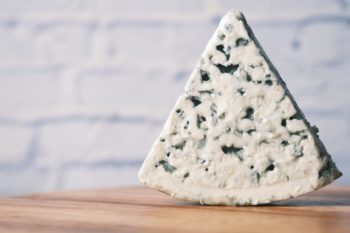AOP’s vs. Nutri-Score Posted by Tim Hildreth on Oct 19, 2021 in Culture, Food, Language, News
I came across a story for all you foodies out there – a news story especially of interest to those of you (us!) who love to eat but also care about your health. Discussions set to be held today (mardi, 19 octobre, 2021) will pit some of Europe’s most recognized AOP’s against a European-wide Nutri-Score.
What’s at stake?
As I’ve covered before, the Nutri-Score is a system “intended to make it plus facile1easier for shoppers to identify foods that are bon2good from those that are mauvais3bad”. Since it’s original introduction in 2014, the Nutri-score system has been adopted in a number of countries including la France, la Belgique4Belgium, L’Espagne5Spain, L’Allemagne6Germany, Le Luxembourg, Les Pays-Bas7The Netherlands, et la Suisse8Switzerland and now is up for debate to be generalized across Europe.
But a group of countries (and producers) are opposing the spread of – or asking to be exempt from – a broader application. Italy, leading the charge, has convinced la Grèce9Greece, la République-Tchèque10The Czech Republic et la Roumanie11Romania to join their cause along with the producers of renowned AOP products like “le Roquefort, le parmesan italien et l’huile d’olive espagnole”12(French) Roquefort, (Italian) Parmesan, and (Spanish) olive oil.
While the European Union (and supporting nutritionists and scientists) would like to see the food label adopted community-wide by 2024, “[l]es producteurs craignent de voir les ventes chuter. Les études montrent que le Nutri-score diminue les achats de produits gras et sucrés”13producers fear seeing sales plummet. Studies show that the Nutri-score reduces sales of products high in fat and sugar
Europeans are (generally rightly) proud of their local products. In order to protect the unique attributes of products like champagne or Roquefort and Emmental cheese, France introduced the Appellation d’origine contrôlée14Controlled name of origins label (L’Appellation d’origine protégée15Protected name of origins(AOP) is the European-wide equivalent of AOC).
These terms (AOC and AOP) are often applied to products whose unique nature comes from the unique nature of the land (and climate) in which they grow – known as terroir16For oysters, American producers have coined the term meroir..
Un nouvel Astérix
Comic books known as les bandes-dessinées were a big part of my learning French. I read (and still read today) the great illustrated stories of Tintin, Spirou et Fantasio, Blake et Mortimer, Lucky Luke, Yoko Tsuno, and Astérix.
Le 21 octobre, Astérix et ses compagnons “[seront] de retour pour une 39e aventure intitulée Astérix et le Griffon”17On October 21, Asterix and his companions will be back for a 39th adventure called “Asterix and the Griphon” This latest adventure is being released in unprecedented initial printing of 5 million copies around the world! I’ll report back once I get my hands on a copy (and if you beat me to it, share your reactions in the comments below!).
- 1easier
- 2good
- 3bad
- 4Belgium
- 5Spain
- 6Germany
- 7The Netherlands
- 8Switzerland
- 9Greece
- 10The Czech Republic
- 11Romania
- 12(French) Roquefort, (Italian) Parmesan, and (Spanish) olive oil
- 13producers fear seeing sales plummet. Studies show that the Nutri-score reduces sales of products high in fat and sugar
- 14Controlled name of origins
- 15Protected name of origins
- 16
- 17On October 21, Asterix and his companions will be back for a 39th adventure called “Asterix and the Griphon”

Build vocabulary, practice pronunciation, and more with Transparent Language Online. Available anytime, anywhere, on any device.




